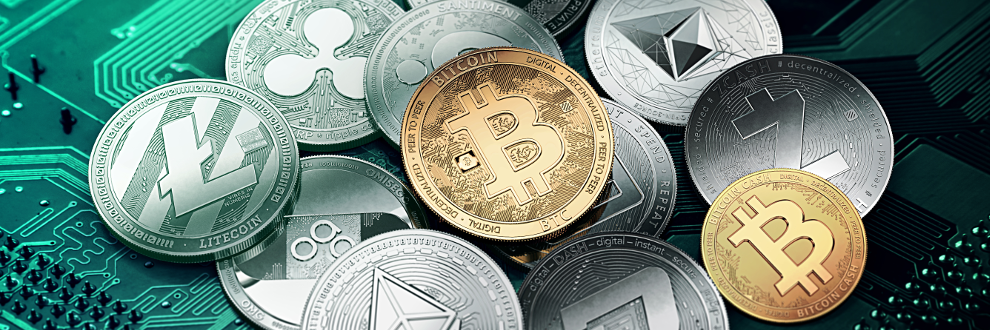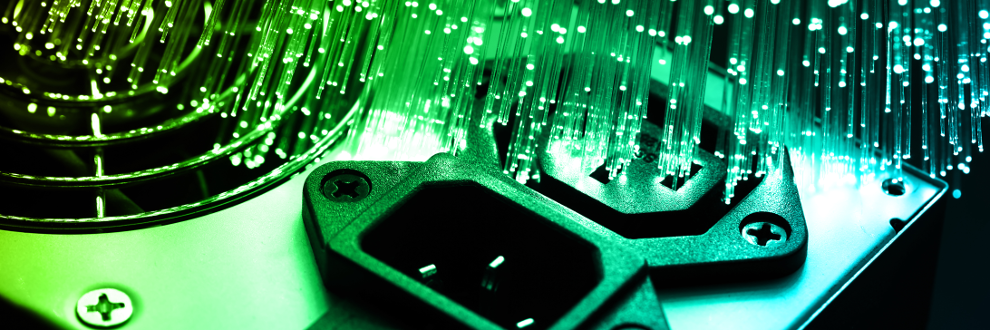Here’s What’s Driving Up Prices For High-Capacity PSUs
You may have noticed that graphics cards aren't the only PC components with price and availability issues lately. Power supplies with 850W or higher capacities have become scarce, and that's at least partly because of cryptocurrency mining. That's true in the U.S. and EU as well as warehouses in China and Hong Kong. Even brands that usually sell a small quantity of high-capacity PSUs have sold through most of their stock, leaving their warehouses empty.
This has left the market with a shortage of PSUs and eventually led to the inflation of PSU prices. Below, we explain why.
Reasons Behind The Inflated PSU Prices
Increased Demand
The first reason, of course, is simply increased demand. It's the rule of the market: the higher the demand, the higher the price. Many of the problems that led to price jumps can be blamed on the increased demand for high-capacity PSUs thanks to the resurgence of crypto mining.
PSU Sales Chain Issues
PSU sales traditionally work like this: factory, brand headquarters, brand local office, distributor, reseller, consumer. A factory in China most likely builds the products booked by a PSU company's headquarters. Then the brand's local offices make their orders based on what distributors have requested, which are in turn based on resellers' demands. This long chain and its many intermediaries is not particularly efficient.
Some resellers are large enough to bypass many of those middlemen, however, by purchasing directly from a brand's local offices or headquarters. Amazon, Newegg, Caseking, Alternate, Scan, and other resellers, for example, often buy directly from a brand instead of dealing with the typical supply chain. If a reseller places an order with a brand's headquarters, it usually orders full container loads "Free On Board" (FOB) from China or Hong Kong. (FOB shipping means the containers are sold to the resellers the moment they're loaded on the cargo ships.) Depending on the destination, this shipping method can take from three to seven weeks. In exchange, resellers often get a nice discount.
Get Tom's Hardware's best news and in-depth reviews, straight to your inbox.
Ordering FOB from China isn't an option to resellers that need to restock fast. Instead, many will have to turn to a brand's local office or to distributors, both of which sell the products at higher prices than the headquarters. Inevitably, buying at higher prices requires the reseller to sell at higher prices. Companies want to preserve their margins, after all, which means extra costs are passed on to consumers.
There are many resellers in the U.S. and EU markets, and they all use different strategies. Some wait for stock to land at brands' local offices, while others wait for their FOB orders to arrive from China or Hong Kong. The latter will be out of stock for a long time, but they'll also sell the products for the normal price. Other resellers buy from whatever source they can to guarantee stock even if it means they have to raise prices.
Distributor And Resellers Increase Their Margins
Distributors and resellers have of course noticed the shortage of high capacity PSUs and seized the opportunity to increase their margins instead of just maintaining them. That doesn't necessarily have anything to do with manufacturers and brands--some of them sell their products at the same price they did before the shortage, which means in some cases increased prices lie solely with distributors and resellers.
Currency Exchange Rates
Parts needed to build PSUs are sold in Yuan Renminbi (often called RMB), as are the wages paid to Chinese factory workers, while PSUs are sold in USD. The USD to RMB exchange rate dropped in late 2017. In January, many PSU factories started to increase their prices by around 5% to cover the resulting losses. As far as we know, some OEMs have already informed customers about this cost increase, but so far a number of brands have not made a move to increase their prices. According to our sources, one of the brands in the former category is Corsair. In this case, the increase in prices isn't related to higher demand, but rather the result of a deviation in exchange rates.
Electronic Parts Availability Issues
While all that was happening, the lead time for parts like capacitors, coils, ICs, MOSFETs, transformers, etc. also increased. That's not just because of increased demand for high-capacity PSUs--it also results from increased production of electric vehicles and other products that require the same parts. Companies have to wait up to 10 weeks for some parts. PSU production capacity was also limited in this period because many factories closed in February due to the Chinese New Year vacation period. Supply can't be increased by much on short notice, so if a reseller ordered 1,000 PSUs in the first week of February, the ETA for delivery in the U.S. or EU by sea cargo could be as far off as June.
Uncertainty About Large High-Capacity PSU Orders
Demand for PSUs with 850W or greater capacities is typically rather low. That makes brands, distributors, and resellers extra careful with their forecasts, because if the mining business somehow shuts down tomorrow, there will be a lot of stock that will take years to sell. This has happened before: Back when Bitcoin mining moved from PCs to ASICs, some component vendors had a hard time with all their leftover stock. Thus, many brands currently place the same exact order to the factories as before the mining boom, plus an extra quantity for distributors fully committed to buying that stock. Distributors also don't know how long business will boom, however, so even they are playing things pretty safe. It's better for all of these companies to have restricted sales at higher margins instead of a massive overstock that could lead to losses.
Some Brands Want To Increase Their Profits
Some brands have increased their prices not only to cover the extra cost of components but also to increase their margins. One of the largest brands in PSUs, EVGA, is a good example. According to our sources, the company has increased the prices distributors have to pay by 10% for models that are popular among miners. It's also shut down its Netherlands warehouse, which means resellers that could previously place Deliver At Place (DAP) orders at lower prices from EVGA's EU warehouse with delivery in 1-2 weeks now have to pay a higher price for FOB orders. That means they have to bear increased shipping costs, deal with larger Minimum Order Quantity (MOQ), and suffer through a longer lead times. Resellers basically have to increase the prices of PSUs like the 1600 G2/P2/T2 by 20% just to make the same money as before.
We should note, however, that brands like EVGA also had to increase prices because they expect mining to result in higher RMA rates, especially when many high-end PSUs are covered by long 7-12 year warranty periods.
Shipping Costs
Some companies have turned to air cargo for shorter transit times and faster stock refill. That costs around $10-$15 per unit, though, and because large quantities of PSUs are being shipped this way in order to quickly meet the increased demand, those costs are bound to be passed on to consumers.
Summary
Some companies, like EVGA, have increased prices to make more money and cover expected losses from increased RMA rates caused by crypto mining. But other brands and OEMs have increased their prices simply to make the same money they were before. Some other major brands (eg, Corsair) have maintained their old pricing, although they may have to reconsider this tactic soon enough.
Meanwhile, distributors and resellers have increased their margins because of the high demand. Shipping costs have also risen, there's a shortage of parts required to build PSUs, and the USD to RMB exchange rate has dropped. All of these factors have led to the inflation you see in high-capacity PSU prices.

Aris Mpitziopoulos is a contributing editor at Tom's Hardware, covering PSUs.
-
King_V Reply20750286 said:Crypto has ruined the whole custom PC market.
I find it hard to argue against that. -
Barty1884 The added costs of faster air (vs traditional boat) shipping is often overlooked, but even that (and the need to be in stock, fast) is a direct result of the mining craze. Crazy.Reply -
cryoburner On the positive side, this only really affects miners, and those who are already willing to spend a large amount of money on a system with multiple high-end graphics cards. No single-card system should require a PSU with that kind of capacity.Reply
More importantly, someone needs to make PSUs with fiber-optic lighting a trend.: P -
ko888 My local PC components vendor has even put up a warning on their home page a few days ago that warns shoppers about the Graphics card and PSU shortage that they're experiencing.Reply -
Dark Lord of Tech Reply20750375 said:My local PC components vendor has even put up a warning on their home page a few days ago that warns shoppers about the Graphics card and PSU shortage that they're experiencing.
Good choice , due to the highly elevated prices and lack of stock. -
berezini.2013 The whole mining business will end eventually, why? because when you purchase expensive hardware as an investment into the future, you dont know how long that particular future will be. What i mean is, a lot of people when they started out didnt realize that hardware they purchase and the invenstment they put in will need to be reinvested over and over due to hardware working 24/7 at full loads. which means if the hardware doesnt pay for itself and another set of hardware to replace it within the time before failure, you are in the minus profitReply -
jpe1701 I would be surprised if these companies aren't working on ways to mitigate these price hikes even if some of them are making more money in the short term. We average builders and gamers and enthusiasts are their bread and butter. They would be foolish to alienate us.Reply -
InvalidError Reply
Miners are continuing to buy out GPU stock because they are turning a profit or at least have probable cause to believe they will manage to do so since so many others have managed to in the past or they've already done so with previous hardware. I've run my HD5770 at full load 24/7 for three years and it still works perfectly fine today, only retired it because 1GB of VRAM is hopeless in newer games with Windows eating 400-600MB of it just to render my desktop and open windows.20750425 said:if the hardware doesnt pay for itself and another set of hardware to replace it within the time before failure, you are in the minus profit
With clean power and adequate cooling, properly designed components can have greatly extended lifespan.
-
Pat Flynn The market in particular that the mining is affecting is the PC VR market. The hardware needed to run VR will (GTX 1080Ti, high end single GPU systems) is way too expensive right now. I'm waiting for my Pimax 8K's to arrive, but I still need to purchase another video card for my wife's computer. I'm hoping another generation of GPU comes out that hampers mining (like the generation of Nvidia cards that came out with significant cut in mining capabilities- the 700's I think?)Reply

